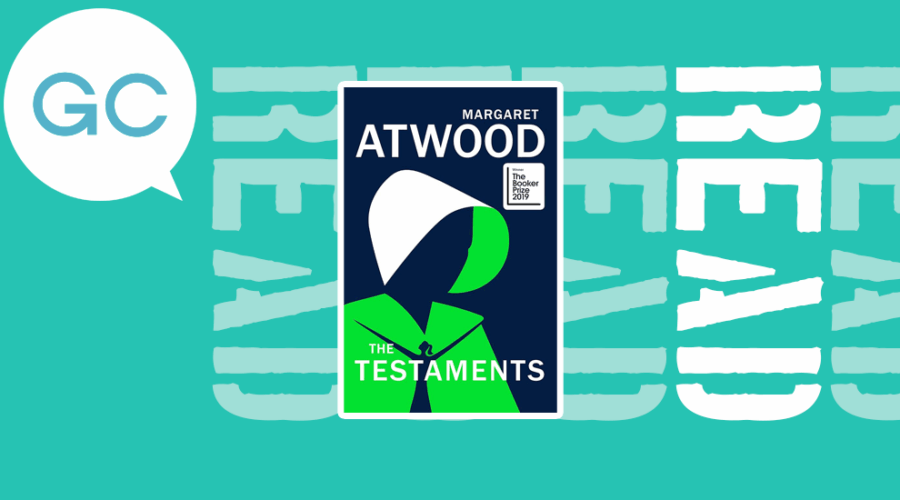After the finale of The Handmaid’s Tale this year, it didn’t take long for disappointment to surface on social media, with some viewers calling the last episode “awful.”
However, that reaction overlooks a crucial detail: many are unfamiliar with the continuation that Margaret Atwood envisioned in The Testaments, her 2019 sequel that expands and deepens the story’s arc.
Far from closing on a false note, the series leaves the door open to a story that already exists on paper and provides a broader, more complex and more powerful look at the fate of Gilead and its protagonists.
The Handmaid’s Tale never promised happy endings; its strength lies in showing resilience in the face of a brutal system. At the close of the series, June (played by Elisabeth Moss) made significant progress: protecting other women and rebuilding part of her life. But the deepest wound remains open: Hannah (Agnes) is still out of her reach.
Many viewers expected a reunion between mother and daughter, but the producers decided not to offer it, and there is a good reason. In The Testaments, Hannah lives in Gilead, and has not seen her parents for years.
The story, far from ending, only changes perspective.
Atwood wrote The Testaments more than three decades after her first foray into the world of Gilead, and she did so with a narrative maturity that gives coherence and depth to the development of her characters.
The plot does not respond to immediate desires for closure or happiness, but to an internal logic faithful to the dark and complex tone of this universe.
To rewrite an ending just to please a desire for happiness would betray the spirit of the story. Atwood reminds us that in Gilead, victories are partial, pain leaves its mark, and hope, though real, is never simple.
The Testaments picks up the story fifteen years after the events of The Handmaid’s Tale, but with a new narrative structure: we no longer follow June, instead we learn about the world through three different voices that allow us to understand both the inner workings of the regime and the resistance movements growing within and beyond its borders.
Victories are partial, pain leaves its mark, and hope, though real, is never simple
One of the most surprising narrators is Aunt Lydia, who in the first novel and in the television series seemed a figure completely given over to the system. In The Testaments, Atwood makes her character more complex, showing her internal contradictions and how, from her position of power, she begins to leak information that may contribute to the collapse of Gilead.
Alongside her, we meet Agnes (Hannah), a young woman raised in the rigidity of the regime, and Daisy (Nicole), a Canadian teenager who discovers that her identity is directly connected to the past she has tried so hard to understand.
The combination of these three perspectives allows us to explore the cracks in the system and the value of memory and disobedience.
The Testaments is a must-read for those who were trapped by the dystopia of Gilead and want to continue exploring its consequences from new perspectives.
In contrast to the bleak atmosphere of the original novel, this sequel offers a glimpse of hope, and of possible change, without abandoning the fierce criticism of authoritarianism, religious fanaticism and the silencing of women.
It is, after all, a sequel that not only expands Atwood’s imagined world, but also dialogues with our present in disturbing and revealing ways.
The new series — set to premiere in 2026 — not only continues the socio-political story, but enriches it by offering a shared narrative between familiar characters and new stories. This multi-plot approach allows viewers to gain a deeper understanding of both the evolution of Gilead’s regime and the acts of resistance that took shape after the collapse narrated in the final seasons.
Bruce Miller, showrunner of the original series, handed over the baton to finish the sixth season and dedicate himself entirely to adapting The Testaments for the screen. That transition is intended to make the new season not feel like an isolated spin-off, but rather the natural consequence of the ambiguous ending left by the original series. In fact, filming has already begun, with Ann Dowd reprising her role as Lydia.
Through this adaptation, viewers will be able to see how the seeds of dissent that germinated in The Handmaid’s Tale blossom in The Testaments from the perspective of women who grew up inside the system or challenged it from the outside.
The series promises carefully woven narrative continuity, where the fall of Gilead, Lydia’s ambiguous morality and the awakening of a new generation intertwine to offer an authentic and exciting evolution of the dystopian universe created by Margaret Atwood.
With The Testaments, fans of the Gilead universe have the opportunity to revisit a story that still holds secrets and twists to be revealed. The new series promises a more complex look at the workings of power, silent dissent and the memory of those who lived under an oppressive regime. Expect a production faithful to the haunting tone of The Handmaid’s Tale, but with new perspectives and a more choral approach.
The series will be released by Hulu, the same platform that hosted the six previous seasons, confirming its commitment to one of the most shocking television dystopias of the last decade.

